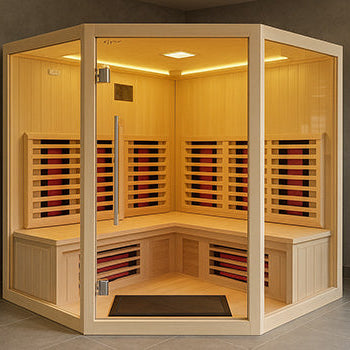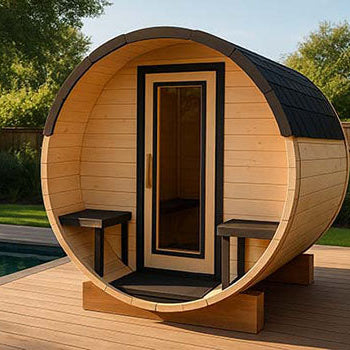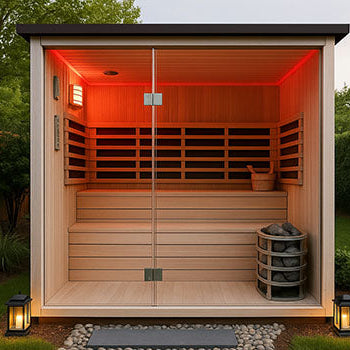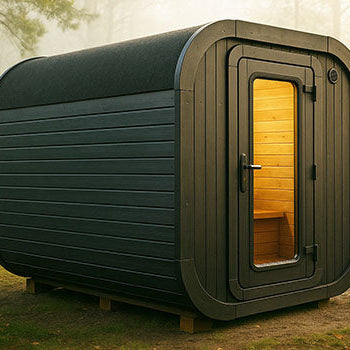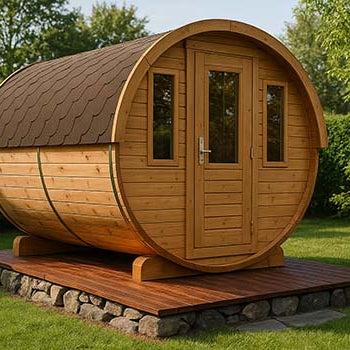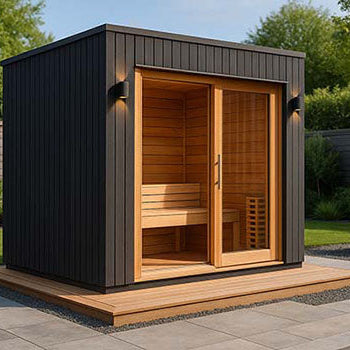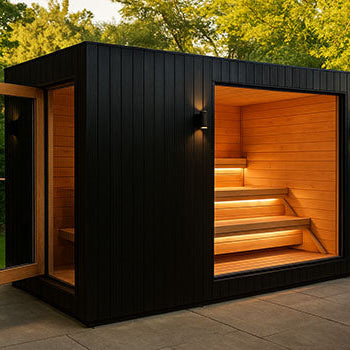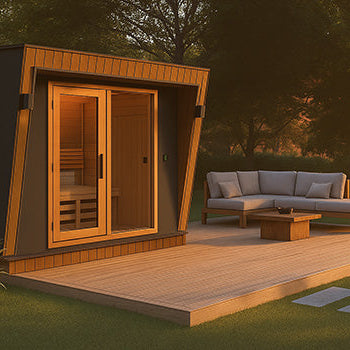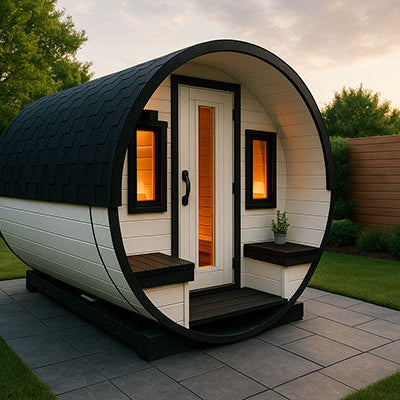Thinking of swapping swollen ankles for a sauna glow? Hold that towel! Using saunas when pregnant—whether it’s a backyard outdoor sauna or a cosy indoor sauna—isn’t as harmless as it sounds. Short answer: It’s best to avoid it. Pregnancy and intense heat don’t mix well, especially in those early weeks. Here’s what you need to know—and what to try instead if you're craving that spa-day bliss.

Sauna Use During Pregnancy: Understanding the Safety Concerns
Why Heat Exposure Needs Careful Consideration in Pregnancy
Let’s face it—pregnancy already feels like running a marathon in a puffer jacket. Your body is working around the clock, and adding sauna heat into the mix can push it over the edge.
It’s not just about feeling warm. Your core temperature can rise quickly in a sauna, and that can lead to problems for both you and your growing baby. Even if you're only popping into your indoor sauna “just for 5 minutes,” it might be enough to trigger overheating.
So while the idea of sweating it out may sound soothing, it’s best to hit pause during this chapter.
The Major Risk: Maternal Hyperthermia
Defining Hyperthermia and Its Risks to Fetal Development
Hyperthermia means your internal body temperature gets too high. In a sauna, it doesn’t take long for that to happen, especially during pregnancy.
And here’s the kicker: your baby can’t regulate temperature the way you can. If your body gets too hot, your baby gets too hot, too. That added heat stress has been linked to developmental issues, particularly in the early stages of pregnancy.
Link Between Elevated Core Body Temperature and Birth Defects
Studies show that sustained high temperatures during the first trimester may increase the risk of neural tube defects like spina bifida. These are serious conditions that affect how the spine and brain form.
What makes this especially concerning? Neural tubes form within the first 4–6 weeks of pregnancy, often before you even know you’re expecting. That’s why medical experts warn against high-heat environments from the very start.
Particular Concerns During the First Trimester
The first trimester is like laying the foundation of a house. Everything your baby needs—from a beating heart to brain pathways—is being built during this time.
Exposing yourself to high temperatures during this phase can interfere with these critical steps. The body’s natural cooling systems struggle during pregnancy, making it even harder to manage the heat from saunas or steam rooms. So even short visits carry unnecessary risk.
Other Potential Risks for Pregnant Individuals

Increased Risk of Dehydration
Saunas make you sweat. And when you’re pregnant, you’re already more vulnerable to fluid loss. That sweaty glow could quickly turn into dehydration, light-headedness, and exhaustion—none of which are ideal during pregnancy.
Losing fluids also affects blood circulation and the delivery of oxygen and nutrients to your baby. So what seems like a minor side effect can have a knock-on effect on overall health.
Blood Pressure Fluctuations, Dizziness, and Fainting
Your heart’s already pumping extra blood during pregnancy. Toss in sauna heat, and that effort doubles. The result? Unpredictable blood pressure changes.
You might feel dizzy, faint, or suddenly out of breath. That’s your body saying, “This is too much!” Not only is that uncomfortable, but it’s also potentially dangerous, especially if you’re alone in the sauna.
What Do Medical Guidelines Recommend? (UK Perspective)
General Advice from Health Bodies (e.g., NHS/RCOG) Regarding Overheating
According to NHS guidelines and the Royal College of Obstetricians and Gynaecologists (RCOG), overheating during pregnancy should be avoided. That means skipping the sauna, steam room, hot tub, or anything that can push your temperature beyond 38°C.
Why the strict rules? Because increased core temperature has been linked to pregnancy complications, especially in the first 12 weeks. Even a seemingly short session can cause more harm than good.
The Importance of Consulting Your Midwife or Doctor
Every pregnancy is different, so don’t play guessing games. Always talk to your midwife or GP before trying any heat-related therapies.
They can assess your risks, review your pregnancy progress, and guide you toward safer relaxation options. What works for one expectant mum might not be right for another.
Safer Ways to Relax During Pregnancy

Just because saunas are off-limits doesn’t mean you can’t enjoy a little self-care. There are plenty of safe ways to unwind that don’t involve turning up the heat.
Try a warm (not hot) bath, prenatal yoga, guided breathing sessions, or even a foot soak with essential oils. You could also go for a gentle massage from a certified prenatal therapist or relax in a cool room with a calming playlist.
These small rituals can offer just as much stress relief, without the risks.
Conclusion: Why Avoiding Saunas is the Safest Approach During Pregnancy
Pregnancy already comes with enough rules, but this one’s worth following. Saunas, steam rooms, and intense heat are best left off the pregnancy to-do list. The risks—ranging from overheating and dehydration to more serious developmental concerns—just aren’t worth the short-term comfort.
Instead, focus on low-heat, low-risk ways to relax. You’ll not only protect your baby’s health, but you’ll also avoid the dizziness, the sweating, and the constant need to Google, “Is this normal?”
There’ll be time for that spa break once your little one arrives. For now, your best self-care tool is knowledge, and choosing safety every time.







